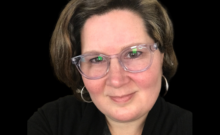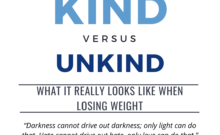I asked in a little survey recently if people felt like they knew what to eat to lose weight. 92% said yes. I believe that in general, people know what is healthy and what isn’t.
Yes, we can always learn more.
And yes, this isn’t true for everyone.
But, when you think about it, humans have lived an awful long time successfully without understanding macros, calories, metabolism or the like.
While any further knowledge can be useful, for instance, understanding in this day and age, the source of your food, the process in which it’s grown, whether it is organic or not, is helpful now that we are not often at or see the source of the food we ingest. Also, in the case of diseases, or various health conditions, a nutritionist can be invaluable in guiding healing and prevention through selective nutrition plans. I am a firm believer that food is medicine.
However, I believe — in the case of general healthy eating — it’s also not essential to understand nutritional nuances. Here is the simple framework I believe should be our main guide:
The majority of our food should be as close to how nature delivered it as possible.
That’s it.
Look, recently some academics in South America developed what they call the NOVA scale. It categorizes food into 4 groups:
- Group 1 – Unprocessed or minimally processed food
- Group 2 – Processed culinary ingredients
- Group 3 – Processed foods
- Group 4 – Ultra processed foods and drink products
You can see a picture of examples of each category here.
A study using data from over 9000 participants from the 2009–2010 National Health and Nutrition Examination Survey, found that 57% of food eaten in the US was ultra-processed! More importantly, they found that as the amount of ultra-processed food decreased, the content of protein, fiber, vitamins A, C, D, and E, zinc, potassium, phosphorus, magnesium, and calcium was significantly increased. While an increase in ultra-processed foods, increased carbohydrate, added sugar, and saturated fat.
In summary, the less processed food, the healthier the diet. Not rocket science.
So, what if we just focused on eating the majority of our food as close to it’s natural state as possible? Knowing that when we do, we will have a nutritious diet. It can be that easy.




GiGi Eats
I have to say that I think eating healthier is a bit of a knowledge problem. I am a nutrition coach and a lot people legit have NO IDEA – NOOOO IDEA what food even is! It’s shocking to me. At least it was initially, now I am used to the crazy what you might think to be OBVIOUS questions! “Is butter dairy”…. Uhhhh?! Hmmmm….
Teresa Keever
I’d agree that there is probably a lot people that don’t have the nutrition knowledge that we’d expect. I think your work can be so helpful! Especially with addressing things like food sensitivities, etc. But, honestly, I still think it’s not necessary to know all the nuances to generally eat healthy. Eating close to how mother nature provided most of the time will always help in our decision making process.
Daniel
I feel like in today’s world, especially in the countries like the USA, it’s rather difficult to get away from the processed foods without spending the extra bucks for the natural and organic variety. Ugh…
Teresa Keever
It is a challenge, especially with how food subsidies are. One can hope that us creating the demand for the natural and organic will gradually help make the shift.